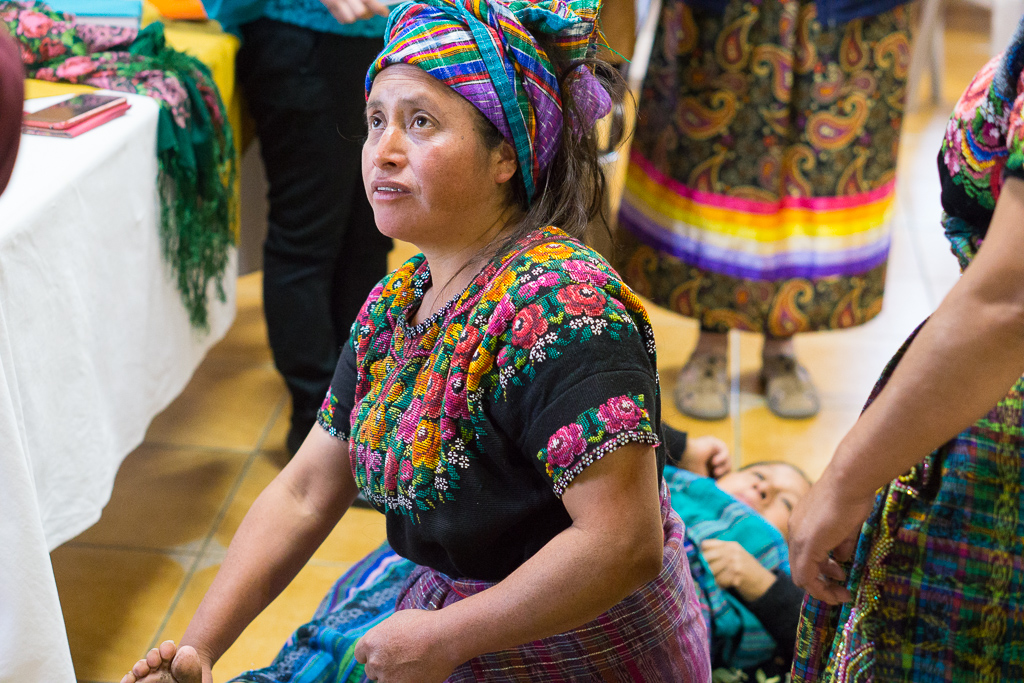Stories of Change - Traditional Midwives Advocate for Transformation
Estela Canastuj, a traditional Indigenous midwife and lead trainer.
Estela Canastuj was born in the municipality of Totonicapán in the Totonicapán province. Estela recalls dreaming she held babies in her arms while women lay on their backs in front of her when she was 22 years old. She remembers being constantly sick throughout her youth, and shared both her experiences with sickness and dreams with an aunt. Her aunt told her these were signs that Estela, an Indigenous Maya K’iche’ woman, was destined to be a traditional midwife - a comadrona. “It was at that moment that I told myself: ‘Yes, I am a comadrona!’”, says Estela. Estela now has 19 years of practicing her gift as a comadrona, having become one of 35 traditional midwives that are replicating PIES’s culturally relevant training with groups of 25 other traditional midwives.
“I use my gift to help pregnant women and I teach them that the child that is coming is a child that brings joy to life and to the home.”
“During my training with PIES I have learned so much! I am part of a group of lead trainers who go out and teach other midwives in the remote rural areas. I have learned how to value myself and other people. PIES supports us to teach in Maya K’iche’ and provides us with visual teaching materials so that the training is accessible to all midwives, many of whom don’t read or write.”
Lead trainers teach groups of midwifes how to use their equipment for safe, clean, deliveries.
Traditional midwives practice up-to-date birthing techniques with the equipment provided in their kits.
“I am giving many workshops and the women tell me, “we have heard some of these themes before but have never been taught in this way. You have come to open our eyes. Now we understand what our rights are”. We have also learned how to teach pregnant women and mothers about their rights, and how to care for their children. This project has strengthened the Indigenous peoples in Totonicapán.”
When we have to attend a birth it can be difficult. Often we are called in the middle of the night and many of the homes are without electricity. Sometimes we have to fend off wild dogs. But none of this is important because the women need us to attend their births.
Through this project we received equipment from PIES. In my 18 years as a midwife I have not been able to afford equipment. These kits are very complete – they provide all of the equipment we need to for safe, clean, deliveries. There is a flashlight to provide light during birth and there is even an umbrella for the rain (and to help us defend ourselves from the dogs)!
Estela receives her new birthing equipment after completing her Lead Trainer workshops.
Estela is a champion of the Nim Alaxik (which translates into ‘Ancestral Wisdom’) National Movement of Comadronas, which demands government authorities respect and recognize the work and contributions of traditional Indigenous midwives.
Susana Batz, has worked for 13 years as a traditional midwife and currently is one of PIES’ lead trainers, teaching best practices in safe, clean deliveries to rural midwives in Maya K’iche’.
“There is a lot of violence against women, against girls, against seniors in Guatemala. I have witnessed it and I have lived it. When I became involved with PIES I learned my rights – it had taken me this long in my life to understand that I had them! It was at that point that my self-esteem started to rise. Now in my work as a midwife, I pass on what I have experienced in my life. I tell other women, this violence against women – this has become a norm in Guatemala but it doesn’t have to be this way” says Susana Batz.
“I go out into my community to talk to people. We are moving slowly like turtles in these problems, but, yes, absolutely, I have seen changes!
As a midwife, sometimes I am a counsellor and a psychologist which can be very difficult work, but thankfully PIES and Horizons have prepared us, and continue to prepare us, to be able to confront the problems we encounter in the communities. As midwives, as lead trainers, we can help our communities, our friends, our colleagues. I have seen midwives arrive for their training with me who are subjugated, but as part of our training we start talking about women’s rights and it is like a cloud lifts from around them as they too finally understand they have a right to be treated with dignity.”





